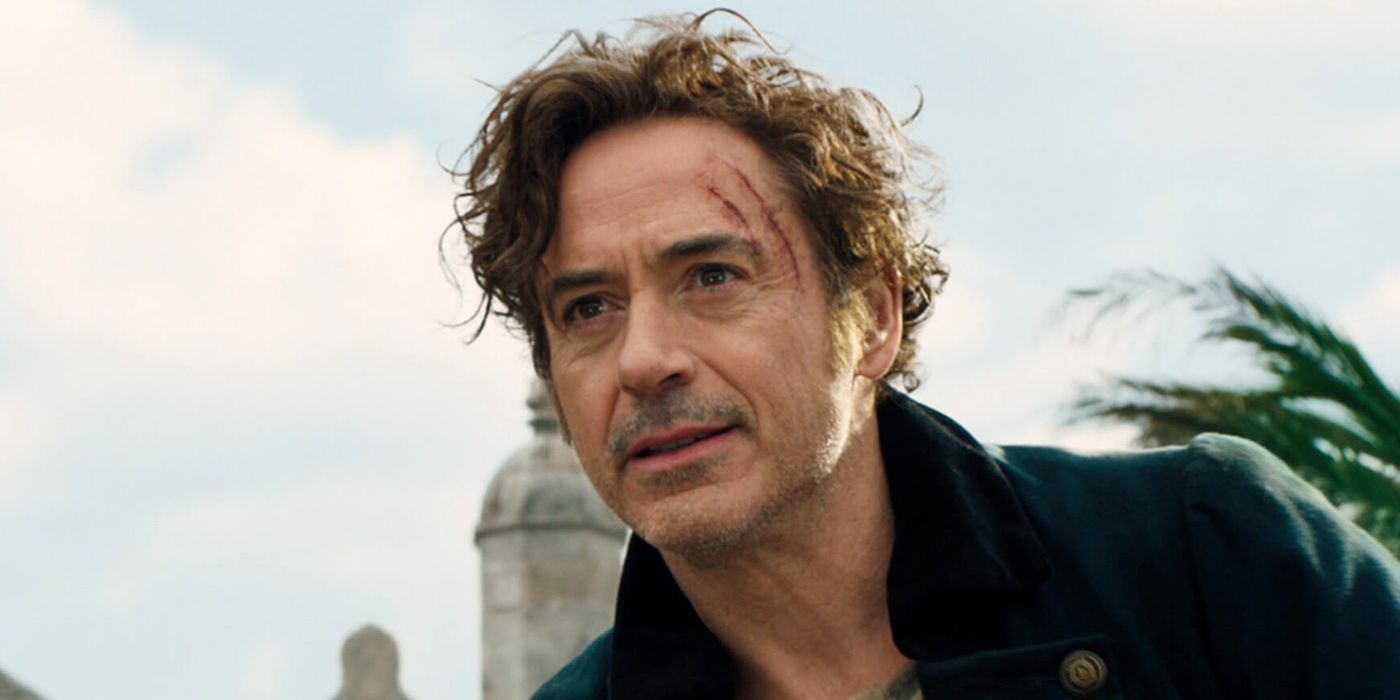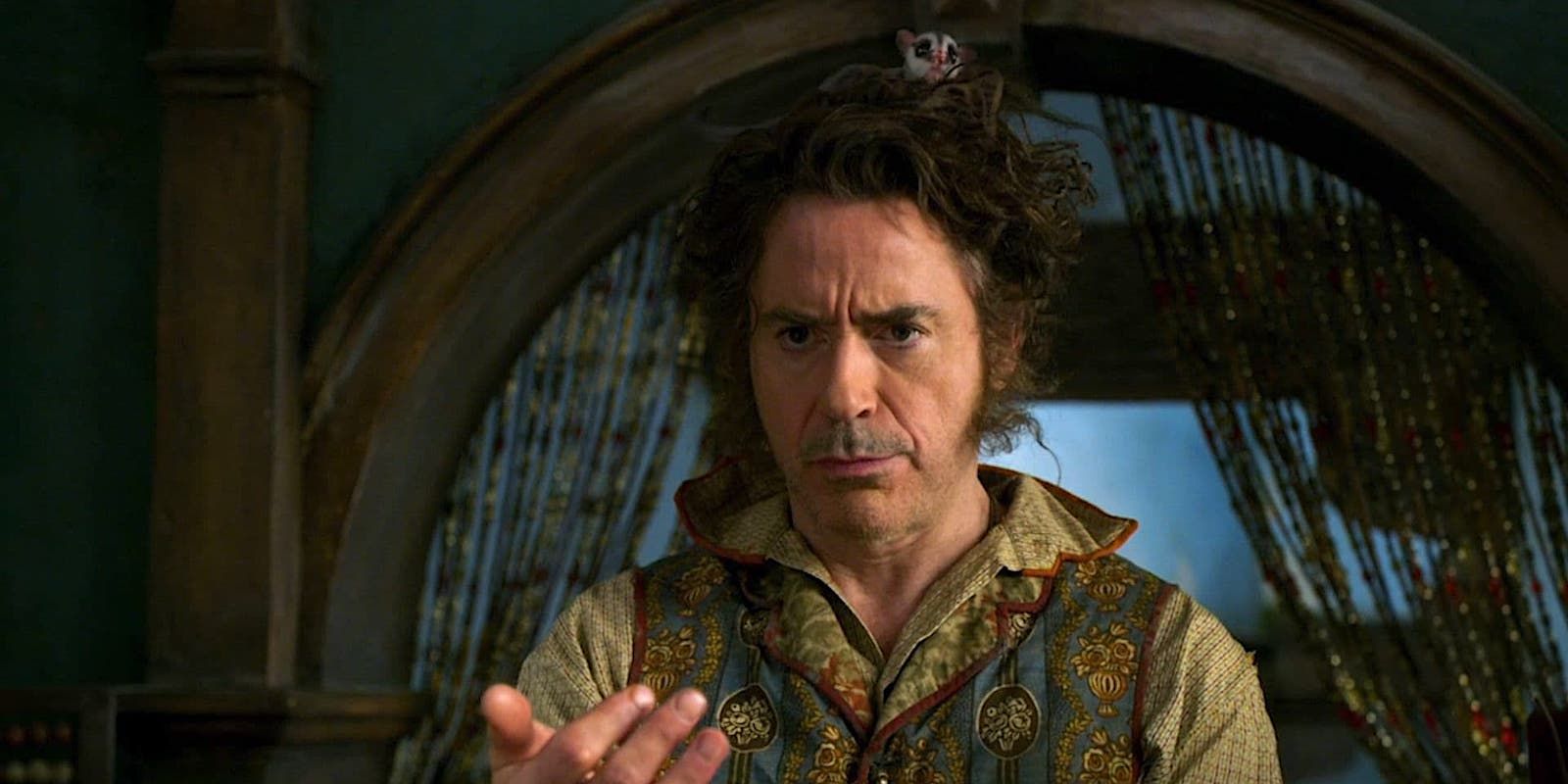WARNING: The following article includes spoilers for Dolittle, in theaters now.
When you think of the literary character Doctor Dolittle, the thing that springs to mind is his ability to talk to animals. However, in the movie Dolittle, starring Robert Downey Jr. in the title role, this fascinating ability is overshadowed by the character’s grief over the loss of his wife. The movie relies on this despair to give the doctor depth and make him relatable. Yet, grief doesn’t make someone nuanced or layered. Grief is something we all go through at some point in our lives. And we all grieve in different ways.
Sometimes grief can be debilitating. Yet, Dolittle takes things a step further. When the movie begins, the doctor's wife has been gone for seven years. During that time, the character has locked himself away with his animals -- and apparently refused to bathe or groom himself in any way. This doesn’t make him interesting though, it makes him sad. Anyone who suffers from that level of inertia for that long is likely suffering from a major depressive disorder, and the fact that Dolittle isn’t getting the help he needs is tragic.
However, the film’s reliance on the doctor’s response to his loss to make the story meaningful overwhelms both him and the movie. It effectively shuts out anything else that might enable the audience to connect with the character.
The trope of women in refrigerators is well-documented in entertainment. Inspired by a storyline used in comics, the trope denotes a plot in which a male character is motivated by the death or injury of a female character. Often the female character’s only role in these kinds of stories is to die so she can serve as a catalyst for the male main character.
At the same time, mothers, and wives in family films rarely make it for long. From Snow White and the Seven Dwarfs to Frozen, Disney, in particular, is known for eliminating the mothers of its animated movie's protagonists. This opens up the opportunity for evil stepmothers and other bad influences to rear their heads and force innocent characters to face difficulties with dignity.
Dolittle seems to be taking its cues from both of these tropes in its constant evocation of the loss of the main character’s wife. The movie recognizes the death of a loved one can be a potent way to motivate and recalibrate a character. Yet, there’s a reason these tropes are now acknowledged as problematic. By killing off mothers, wives, and girlfriends to further the story of a male character, these stories deny female characters their humanity. Instead, they simply become plot devices.
Dolittle’s wife suffers the same fate. Outside of a few brief flashbacks that show nothing more than the doctor posing romantically with her, we know almost nothing about his wife. We never have the opportunity to learn much about her beyond Dolittle’s grief, so there’s no way the audience can miss her as much as Dolittle does.
To make matters worse, we don’t get to know Dolittle much beyond his grief, either. This causes the character to come across as stunted and one-dimensional. In fact, the film is so preoccupied with the character’s loss, that it seems to come up regardless of what else is going on in the story. Furthermore, as the film nears its climax, Dolittle kisses a locket he associates with his lost love so frequently, it becomes absurd.
Losing a loved one is a terrible experience, and everyone must figure out how to navigate it on their own terms. Our losses often become an important part of our story. But grief isn’t something that defines us, it’s something we go through -- or in the case of Doctor Dolittle, refuse to go through. By glorifying grief and turning it into the defining characteristic of its title character, the movie fails to acknowledge the true challenges of grieving. Instead, Dolittle expects to garner unearned sympathy by constantly nodding to the loss while the character keeps a stiff upper lip and refuses to talk about it. These choices don’t serve the story, the character, or the audience well.
Many well-rounded explorations of grief and loss have been committed to film, Dolittle is not one of them.
Directed by Stephen Gaghan, Dolittle stars Robert Downey Jr., Tom Holland, Jim Broadbent, Harry Collett, Emma Thompson, Selena Gomez, Craig Robinson, Rami Malek, Octavia Spencer, Ralph Fiennes, Kumail Nanjiani, John Cena, Antonio Banderas, and Michael Sheen. Dolittle is in theaters now.


